
NATIONAL CONCERT HALL
2024 — 2025 SEASON



NATIONAL CONCERT HALL
2024 — 2025 SEASON

Irish Premiere
David Hill conductor | Christopher Purves baritone
National Symphony Chorus | David Young choral director
Chamber Choir Ireland | Paul Hillier choral director
FRIDAY 18 APRIL 2025, 3.30pm
Main Stage, National Concert Hall
Tickets from €15 nch.ie

Jessica Cottis conductor
Karen Cargill mezzo-soprano
Samuel Sakker tenor
Friday 21 February 2025, 7.30pm
National Concert Hall
Presented by Paul Herriott, RTÉ lyric fm
Ailís Ní Ríain The Land Grows Weary of its Own Irish Premiere / 18’ NSO co-commission with BBC Radio 3 and Manchester International Festival
Mahler Das Lied von der Erde / 63’
Broadcast live on RTÉ lyric Live on RTÉ lyric fm
PLEASE NOTE: The NCH does not permit photography or videography during the performance (without prior permission). We kindly ask you to refrain from using any recording equipment for the duration of tonight’s performance.
CEO
Robert Read NCH Board Members
Maura McGrath Chair | James Cavanagh | Cliona Doris
Rebecca Gageby | Hilary Hough | Peter McKenna
Niamh Murray | Michelle O’Sullivan | Don Thornhill
Patron
Michael D. Higgins President of Ireland
Ailís Ní Ríain (b.1976)
The Land Grows Weary of its Own
The title is taken from the lyrics of A Sort of Homecoming by the Irish band U2. Here it is re-interpreted to imagine a world that is wearied by the actions and inactions of its human destructors particularly in relation to the demise of wildlife, sea life and bird life. Due to my deafness/hearing loss, I am unable to hear birds. For me, I am relating my impression of what I think a bird might sound like or what it could sound like as climate change takes hold. The focus for me, in this work, are the effects of climate change on birds including their extinction, migration patterns, vocalisation, dehydration and poisoning.
Commissioned by BBC Radio 3, Manchester International Festival and National Symphony Orchestra Ireland, and first performed at Bridgewater Hall, Manchester by the BBC Philharmonic, conducted by Vimbayi Kaziboni, as part of MIF 2023.
Note © Ailís Ní Ríain
INTERVAL
Gustav Mahler (1860-1911)
Das Lied von der Erde (The Song of the Earth)
I. Das Trinklied vom Jammer der Erde
II. Der Einsame in Herbst
III. Von der Jugend
IV. Von der Schönheit
V. Der Trunkene im Frühling
VI. Der Abschied
The year 1907 brought a whole group of sorrows and problems to Mahler. His four-year-old daughter, Marie, died of scarlet fever, his own fatal heart condition was diagnosed and he resigned as Director of the Vienna Opera. It was not an encouraging time to write music and, since completing his eighth symphony in August 1906, his creative pen seemed to have been stilled. Then, to occupy his mind during his summer holidays, which he usually devoted to his compositions, he read a collection of poems translated from classical Chinese authors by Hans Bethge, The Chinese Flute. A court councillor, Theobald Pollack, had presented him with them on publication, suggesting he might consider setting a few. Apparently he did sketch some ideas but his real work on them, and the transformation he achieved with such simple material, had to wait for another 12 months.
In the summer of 1908 Mahler took lodgings in the South Tyrol, near Toblach. It was a rambling, 15th-century inn and the composer set up his studio in a hut in the woods nearby, erecting a fence to protect him from prying eyes. He was to travel to this solitary location for two more years, writing his final works there each year. In 1908 he produced Das Lied von der Erde, a symphony for tenor, alto (baritone) and orchestra, as he titled it, avoiding the number nine, as he felt there was something fatal in producing the same number of symphonies as Beethoven, Schubert, Dvořák and Bruckner. Das Lied was not to be his last symphonic piece, as it turned out, and he wrote his actual Symphony No. 9 over the next two summers and even began his tenth, which he never completed. He died of complications from his heart disease and a blood infection in May 1911.
By this date neither of the two works completed at Toblach had received performances; Das Lied had to wait until 20 November of that year, when Bruno Walter conducted it in Munich, with American singers Sarah Jane Charles Cahier and William Miller as the soloists. Das Lied von der Erde, (The Song of the Earth), was originally titled The Jade Flute and later The Song of Earth’s Sorrow. It uses seven of the 83 poems in the anthology, two poems being brought together to provide the words of the final song. Mahler, once again, employs the kind of short phrases which appear in his earlier works: the intervals of a perfect fourth, a rising minor third and a falling second for example, which mark his personal style virtually on every page and provide a strongly binding unity to the very different kinds of musical expression which range through Das Lied.
There is an urgency in the opening horn-call of the tenor’s first song, ‘The Drinking Song of Earth’s Misery’, and Mahler straight away introduces a note of desolation into his textures in this brilliantly constructed piece. ‘Autumn Loneliness’ is to be played somewhat dragging, wearily and the oboe introduces a deeply pensive mood over a waving accompaniment on muted violins. There is a powerful outcry by the alto on the words ‘Sun of love…’ but the song ends with a further lament on the oboe.
The third song is full of lightness and fun, to be played ‘with ease and serenity’ as the Willow Pattern scene is described by the tenor. In the fourth song, ‘Beauty’, the alto describes another happy picture, with girls gathering flowers while admiring the young men on horseback. The tenor returns for the fifth song, ‘The Drunkard in Spring’, a little scherzo, with the voice marked ‘keck’ (saucily) when it enters.
It is in the final song, ‘The Farewell’ that Mahler really reaches into the full depth of his private emotions. He marks the music ‘heavy’ as he uses contrabassoons, horns and double basses to create the brooding atmosphere, with the oboe delivering its sad, yearning melody. A solitary low C on the cello introduces the voice which is instructed to sing at first ‘in a narrating tone, without expression’. The alto tells her story, rising to a rhapsodic climax on the words ‘O Schönheit! O ewigen Liebens’ but the sadness returns and the music sinks into despair and resignation. While it is fading away, ‘totally dying out’ as Mahler marks it, he creates an evocative ending with the alto repeating the word ‘ewig’ nine times, over the dying musical tapestry. It is one of the most haunting conclusions in all of music.
Note by Ian Fox © National Concert Hall


SATURDAY 29 MARCH 2025, 12.30pm
Lio Kuokman conductor
Jessie Grimes presenter & NCH Artist-in-Residence
In this interactive family-friendly show, you’ll sing, dance and play along, exploring all the amazing sounds a giant orchestra can make in Berlioz’s riotously-colourful orchestral masterpiece, Symphonie fantastique.
Designed for children aged 5 and up, including those with ASD, and their families, this relaxed event promises a musical adventure for all.
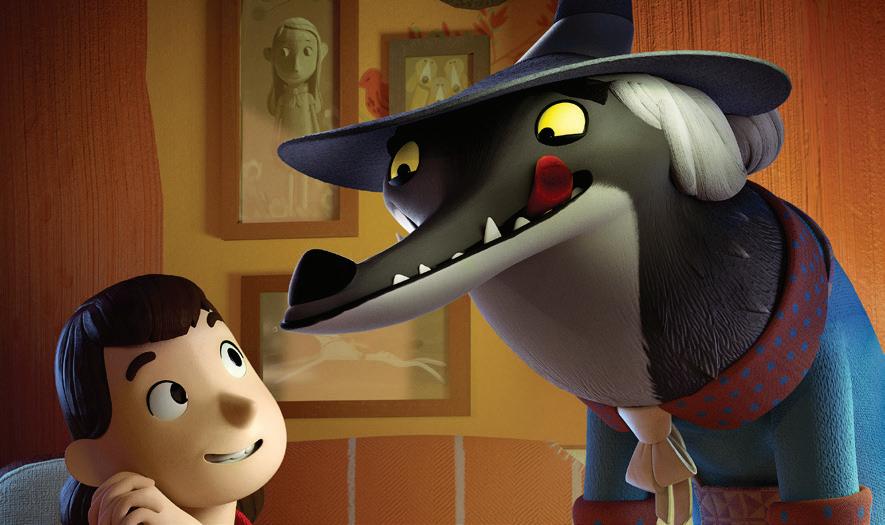
SUNDAY 18 MAY 2025, 12pm, 3pm & 5pm
Terry Davies conductor
Revolting Rhymes is two half-hour films ingeniously interweaving five of Roald Dahl’s retellings of classic fairy tales with playful twists and surprising endings. Watch them on the big screen with the National Symphony Orchestra performing the music live.
Recommended age: 6-11 years (and parents)
Revolting Rhymes: © Magic Light Pictures
Limited 2016.
Tickets from €15 • nch.ie
I. Das Trinklied vom Jammer der Ertle
Schon winkt der Wein im gold'nen
Pokale,
Doch trinkt noch nicht, erst sing' ich euch ein Lied!
Das Lied vom Kummer
Soll auflachend in die Seele euch klingen.
Wenn der Kummer naht,
Liegen wüst die Gärten der Seele, Welkt hin und stirbt die Freude, der Gesang. Dunkel ist das Leben, ist der Tod.
Herr dieses Hauses!
Dein Keller birgt die Fülle des goldenen Weins!
Hier, diese Laute nenn' ich mein!
Die Laute schlagen und die Gläser leeren,
Das sind die Dinge, die zusammen passen.
Ein voller Becher Weins zur rechten Zeit
Ist mehr wert, als alle Reiche dieser Erde!
Dunkel is das Leben, ist der Tod.
Das Firmament blaut ewig und die Erde
Wird lange Jest steh'n
Und aufblühn im Lenz.
Du aber, Mensch, wie lang lebst denn du? Nicht hundert Jahre daifst du dich ergötzen
An all dem morschen Tande dieser Erde!
Seht dort hinab!
Im Mondschein auf den Gräbern
Hockt eine wildgespenstische GestaltEin Aff' ist's! Hört ihr, wie sein Heulen
The Drinking Song of Earth's Sorrow
See how it gleams, with golden enticement,
But drink not yet, I'll sing you my song!
I sing of sorrow, but laughter
Within your heart must give answer. When such sorrow comes,
Dry is the soul, its gardens are withered, Fading and dead the pleasure of our song. Life is only twilight, so is death.
Host, I salute you,
Your cellar hides a treasure of gold in its veins,
But I have a treasure of my own.
To strike the lute and to drink the wine-cup,
These are the things that best consort together.
A brimming cup of wine, when hearts beat faint,
ls better than all the kingdoms of the earth.
Life is only twilight, so is death.
The blue of heaven is unchanging. And unchanging the earth rolls onward And blossoms in spring.
But thou, 0 man, how long livest thou? Why not one hundred years canst thou take pleasure
In all the rotten fruit of life's long vanity.
See there! Over there!
In the moonlight, in the churchyard
Gibbers a ghost with evil in its shape. It is a monkey! Hear him, how his howling
Hinausgellt in den süßen Duft des Lebens!
Jetzt nehmt den Wein! Jetzt ist es Zeit, Genossen!
Leert eure gold'nen Becher zu Grund!
Dunkel ist das Leben, ist der Tod!
II. Der Einsame im Herbst
Herbstnebel wallen bläulich überm See; Vom Reif bezogen stehen alle Gräser; Man meint, ein Künstler habe Staub vom Jade
Über die feinen Blüten ausgestreut.
Der süße Duft der Blumen ist veiflogen;
Ein kalter Wind beugt ihre Stengel nieder Bald werden die verwelkten, gold'nen Blätter
Der Lotosblüten auf dem Wasser zieh'n.
Mein Herz ist miide. Meine kleine Lampe
Erlosch mit Knistern; es gemahnt mich an den Schlaf
Ich komm' zu dir, traute Ruhestätte!
Ja, gib mir Ruh', ich hab' Erquickung not!
Ich weine viel in meinen Einsamkeiten.
Der Herbst in meinem Herzen währt zu lange.
Sonne der Liebe, willst du nie mehr scheinen, Um meine bittern Tränen mild aufzutrocknen?
Sounds strident in our life's sweet scented morning!
So raise your cups, the time has come, companions, Empty your golden cups to the heel! Life is only twilight, so is death.
Grey autumn mists are drifting off the sea And, touched with frost, the grass stands stiff and brittle As if some artist hand had scattered powder, Dusting on every leaf the finest jade.
The scent of summer flowers is forgotten, A chilly wind blows crackling stalks together. Soon will the leaves of fading lotus-blossoms
Display upon the pond their golden span.
I too feel weary See my flick'ring light Burns low and lower, it is time to go to sleep.
I come to you, truest house of quiet, 0 give me sleep, for I have need of rest.
My tears flow on in lonely desolation. The autumn seems in my heart to be eternal.
0 love's warm sunshine, have you gone forever
And will my burning tears be never dried?
111. Von der Jugend
Mitten in dem kleinen Teiche
Steht ein Pavilion aus grünem
Und aus weißem Porzellan.
Wie der Rücken eines Tigers
Wölbt die Brücke sich aus Jade Zu dem Pavilion hinüber.
In dem Häuschen sitzen Freunde, Schön gekleidet, trinken, plaudern, Manche schreiben Verse nieder.
Ihre seidnen Ärmel gleiten Rückwärts, ihre seidnen Mützen Hocken lustig tief im Nacken.
Auf des kleinen Teiches stiller
Wasseifläche zeigt sich alles Wunderlich im Spiegelbilde.
Alles auf dem Kopfe stehend
In dem Pavilion aus grünem
Und aus weißem Porzellan;
Wie ein Halbmond steht die Brücke, Umgekehrt der Bogen. Freunde, Schön gekleidet, trinken, plaudern.
1V. Von der Schönheit
Junge Mädchen pflücken Blumen, Pflücken Lotosblumen an dem Uferrande.
Zwischen Büschen und Blättern sitzen sie, Sammeln Blüten in den Schoß und rufen Sich einander Neckereien zu.
Youth
In the water, on a little island
All of green and egg-shell china, Stands a dainty summer-house.
Like a tiger's back a-curving
Springs the arch of jade to cross it, To this summer-house of dreamland.
In the parlour friends are sitting, Clad in silk, and drinking, chatting, Writing endless little verses.
How their silken sleeves are slipping. How their silken caps sit perching
On those jolly heads a-wagging!
In the tiny pattern's quiet Pool of water see the world reflected In mirror marvellous.
All those friends are topsy-turvy
In that world of egg-shell china, In that dainty summer-house;
Like a sickle moon the bridge is, Upside down its arches; while the friends In silk and satin drink and chatter.
Beauty
See the maidens picking flowers, Picking lotus flowers by the grassy river banks.
In the bushes and leaves they hide themselves, Gathering flowers in their laps And calling one to the other in teasing fun.
Gold 'ne Sonne webt um die Gestalten, Spiegelt sie im blanken Wasser wider.
See the sunshine weaves a web around them, Mirrors all their laughing grace in water.
Sonne spiegelt ihre schlanken Glieder, Ihre süßen Augen wider,
Und der Zephyr hebt mit Schmeichelkosen das Gewebe
Ihrer Ärmel auf, führt den Zauber
Ihrer Wohlgerüche durch die Luft.
0 sieh, was tummeln sich für schöne Knaben Dort an dem Uferrand auf mut'gen Rossen?
Weithin glänzend wie die Sonnenstrahlen, Schon zwischen dem Geäst der grünen Weiden
Trabt das jungfrische Volk einher!
Das Roß des einen wiehert fröhlich auf Und scheut und saust dahin, Über Blumen, Gräser, wanken hin die Hufe, Sie zerstampfen jäh im Sturm die hingesunknen Blüten.
Heil Wie flattern im Taumel seine Mähnen, Dampfen heiß die Nüstern!
Gold'ne Sonne webt um die Gestalten, Spiegelt sie im blanken Wasser wider.
Und die schönste von denJungfrau'n sendet Lange Blicke ihm der Sehnsucht nach.
Ihre stolze Haltung is nur Verstellung.
In dem Funkeln ihrer großen Augen, In dem Dunkel ihres heißen Blicks
Schwingt klagend noch die Erregung ihres Herzens nach.
Sunshine mirrors all their slender beauty, Mirrors their sweet eyes in water, And winds of spring with soft caresses Waft on high their flowing silken sleeves, Bear the magic of their pleasing odour through the air.
0, see, a company of lovely lads Comes riding along the bank on prancing horses, Shining far off like the sun at noonday; See, through the leafy lanes of silvery willows
Trots that gallant young company!
The horse of one of them delighted Wheels and neighs, curvetting round; Over all the flowers trample heavy hoof-beats,
As they bruise in sudden storm the tender hidden blossoms.
How their manes toss in tangled riot, Breathing fire from steaming nostrils.
See the sunshine weaves a web around them, Mirrors all their laughing grace in water.
And the fairest of those lovely maidens Sends a parting glance of longing love For her proud demeanour is all pretending.
In the sparkle of her lustrous glances, In the darkness of her flushing cheeks, That stabbing pain of love's awakening vibrates still.
V. Der Trunkene irn Frühling
Wenn nur ein Traum das Leben ist, Warum denn Müh und Plag'?
Ich trinke, bis ich nicht mehr kann, Den ganzen, lieben Tag!
Und wenn ich nicht mehr trinken kann,
Weil Kehl und Seele voll, So tauml' ich bis zu meiner Tür Und schlafe wundervoll!
Was hörich beim Erwachen? Horch!
Ein Vogel singt im Baum.
Ich frag' ihn, ob schon Frühling sei, Mir ist als wieim Traum.
Der Vogel zwitschert: Ja! Der Lenz Ist da, sei kommen über Nacht!
Aus tiefstem Schauen lauscht ich auf, Der Vogel singt und lacht!
Ich fiille mir den Becher neu
Und leer' ihn bis zum Grund
Und singe, bis der Mond erglänzt
Am schwarzen Firmament!
Und wenn ich nicht mehr singen kann, So schlaf' ich wieder ein,
Was geht mich denn der Frühling an!?
Laßt mich betrunken sein!
Wine in Spring
Since life is nothing but a dream Why toil and sweat away?
I drink until my belly's full And laugh the livelong day!
And when there's no more room inside, I've drunk so hard and deep, I roll along to home and bed
And sleep a lovely sleep!
What's that I hear that wakes me? Hark!
A bird sings in the blue.
I'll ask him if the spring has come. My dream, has it come true?
The twitters answer 'Yes it's here!'
The spring is here as fresh as anything! I look and look and listen hard
The birds all laugh and sing.
I fill myself another glass
And drink with deep content, And sing until the moon lights up The darkling firmament!
When I'm too tired to sing my songs I'll sleep, forgetting pain, For what's the silly spring to me?
Let me get drunk again!
Die Sonne scheidet hinter dem Gebirge.
In alle Tdler steigt der Abend nieder
Mit seinen Schatten, die voll Kuhlung sind.
0 sieh! Wie eine Silberbarke schwebt
Der Mond am blauen Himmelssee herauf.
Ich spüre eines feinen Windes Weh'n Hinter den dunklen Fichten!
Der Bach singt voller Wohllaut durch das Dunkel.
Die Blumen blassen im Dämmerschein.
Die Erde atmet voll von Ruh und Schlaf, Alie Sehnsucht will nun träumen.
Die müden Menschen geh'n heimwärts,
Um im Schlaf vergeß'nes Glück
Und Jugend neu zu lernen!
Die Vögel hocken still in ihren Zweigen.
Die Welt schläft ein!
Es wehet kuhl im Schatten meiner Fichten.
Ich stehe hier und harre meines Freundes;
Ich harre sein zum letzten Lebewohl.
Ich sehne mich, o Freund, an deiner Seite
Die Schönheit dieses Abends zu genießen.
The Farewell
The sun is setting out beyond the mountains
And evening peace comes down in every valley
And shadows lengthen, bringing cool relief.
0 see, like some tall ship of silver sails
The moon upon her course, through heaven's blue sea.
I feel the stirring of some soft south-wind
Behind the darling pine-wood.
The stream sings as it wanders through the twilight,
As evening waxes the flowers grow pale.
The earth breathes gently, full of peace and sleep,
All our longings sleep at last. Mankind, grown weary, turns homeward,
That in sleep, forgotten joy
And youth it may recapture.
The birds with open eye roost in the branches.
The world now sleeps.
The air is cool within the pine-wood's shadow.
Here will I stand and tarry for my friend.
I wait for him to bid the last farewell.
0 how I long, my friend, once more to see thee,
To share the heavenly beauty of this evening.
Wo bleibst du? Du lii}Jt mich lang allein!
Ich wandle auf und nieder mit meiner Laute
Auf Wegen, die vom weichen Grase schwellen.
0 Schiinheit! 0 ewigen Liebens - Lebenstrunk'ne Welt!
Er stieg vom Pferd und reichte ihm den Trunk
Des Abschieds dar.
Er fragte ihn, wohin
Er führe und auch warum es müßte sein.
Er sprach, seine Stimme war umflort: Du, mein Freund,
Mir war auf dieser Welt das Glück nicht hold!
Wohin ich geh'? Ieh geh', ich wand're in die Berge.
Ich suche Ruhe für mein einsam Herz. Ich wandle nach der Heimat, meiner Stätte.
Ich werde niemals in die Ferne schweifen. Still ist mein Herz und harret seiner Stunde!
Die liebe Erde allüberall
Blüht auf im Lenz und grünt aufs neu!
Allüberall und ewig blauen licht die Fernen!
Ewig ... ewig ...
Where art thou? I have been long alone. I wander up and down and make my music
O'er pathways that are paved with tender grasses.
0 Beauty, 0 life of endless loving, wild drunken world.
He lighted down and proffered him the cup,
The parting cup.
He asked him whither he was faring And questioned why. why it must needs be so.
He spoke, and his voice was veiled: 0 my friend
While I was in this world my lot was hard. Where do I go? I go, I wander in the mountains,
I seek but rest, rest for my lonely heart. I journey to my homeland, to my haven.
I shall no longer seek the far horizon. My heart is still and waits for its deliverance.
The lovely earth, all, everywhere, Revives in spring and blooms anew, All, everywhere and ever shines the blue horizon!
Ever ... ever ...


Conductor Jessica Cottis has earned widespread recognition for her inventive, thought-provoking programming and inspiring musical leadership. She is one of the most outstanding Australian conductors working today, in high demand from orchestras around the world.
Cottis’ recent highlights include engagements with the National Radio Orchestra of Romania, Prague Radio Symphony Orchestra, Tasmanian Symphony Orchestra, Adelaide Symphony Orchestra, Opera Australia, Canberra Symphony Orchestra, and the Aldeburgh Festival, as well as numerous re-invitations to the Royal Opera House, Covent Garden, and the prestigious BBC Proms. She has recorded for the BBC, ABC, and Decca Classics labels.
During the 2024-2025 season Cottis makes her highly anticipated debut with Turku Philharmonic Orchestra and looks forward to continuing collaborations with National Arts Centre Orchestra (Ottawa), Edmonton Symphony Orchestra, Queensland Symphony Orchestra, Gävle Symphony Orchestra, Uppsala Chamber Orchestra, Britten Pears Opera, Philharmonie Luxembourg, and Basel Sinfonietta. Cottis begins her second season as Artistic Partner of the Västerås Sinfonietta in Sweden and continues her fourth season as Chief Conductor and Artistic Director of the Canberra Symphony Orchestra. This season Cottis will conduct major works by Brahms, Prokofiev, Mahler, Beethoven, Vaughan Williams, Schubert, and Elgar.
Widely admired for her deep musical curiosity and affinity for new music, Cottis has conducted highly respected contemporary opera productions, including Poul Ruders’ The Handmaid’s Tale at the Royal Danish Opera, John Adams’ The Death of Klinghoffer for NorrlandsOperan, Jonathan Dove’s Itch at Opera Holland Park, Samatha Newton and Rachel C. Zisser’s Mamzer Bastard for the Royal Opera at Hackney Empire, Gerald Barry’s The Intelligence Park for London Sinfonietta at Linbury Theatre, and Gavin Higgins and Francesca Simon’s The Monstrous Child for Aurora Orchestra at the Royal Opera House.
She acted as Music Director for Laura Bowler’s The Blue Woman at the Royal Opera House and continues her collaboration with Britten Pears Opera this year with the premiere of a new opera by Colin Matthews. Cottis has also conducted critically acclaimed productions of Verdi’s La traviata for Opera Australia, Janácˇ ek’s The Cunning Little Vixen for Opera Holland Park, and Verdi’s Macbeth for NorrlandsOperan.
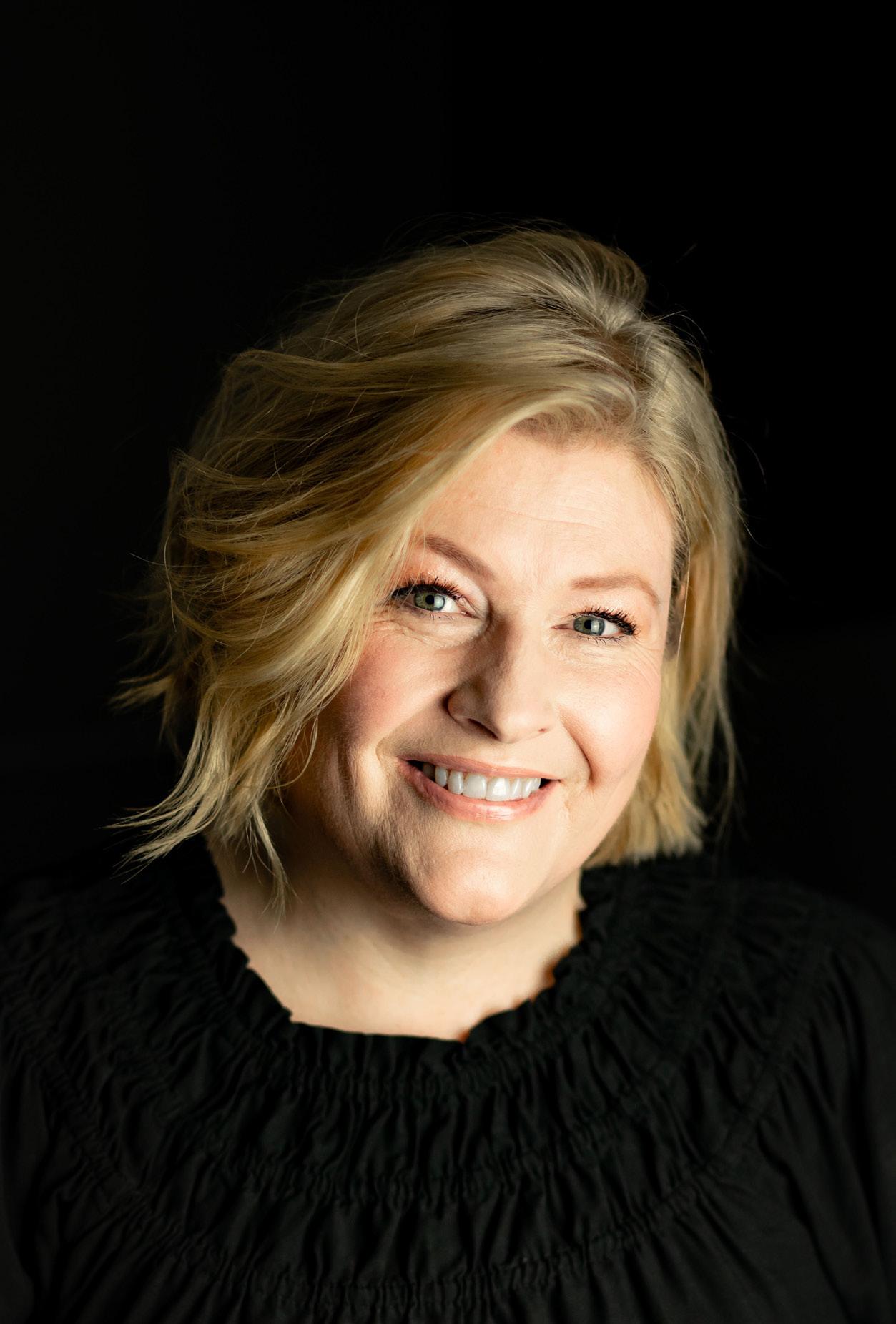
Scottish mezzo-soprano Karen Cargill is one of the most renowned singers of her generation. Winner of the 2002 Kathleen Ferrier Award, Karen has gone on to be nominated for a Grammy Award for Best Operatic Recording as part of the Metropolitan Opera’s recording of Dialogues des Carmélites. In 2018 Karen was awarded an Honorary Doctorate from the Royal Conservatoire of Scotland.
Karen’s operatic roles include Geneviève (Pelléas et Mélisande), Judith (Bluebeard’s Castle), Mère Marie (Dialogues des Carmélites), Dryade (Ariadne auf Naxos), Dido (Dido and Aeneas), and Anna (Les Troyens).
Famed for her interpretation of Wagner, Karen regularly sings Erda (Das Rheingold and Siegfried), Fricka (Das Rheingold), Brangäne (Tristan und Isolde), Waltraute (Götterdämmerung) and Magdalena (Die Meistersinger von Nürnberg).
In concert, Karen enjoys longstanding relationships with several conductors including Yannick Nézet-Séguin, Robin Ticciati, and Pekka Salonen. With her recital partner Simon Lepper, Karen has performed at Wigmore Hall, London; Concertgebouw, Amsterdam; Kennedy Centre, Washington and Carnegie Hall, New York, and regularly gives recitals for BBC Radio 3.
With Simon, Karen also recently recorded a critically acclaimed recital of Lieder by Alma and Gustav Mahler for Linn Records, for whom she has previously recorded Berlioz’s Les nuits d’été and La mort de Cléopâtre with Robin Ticciati and the Scottish Chamber Orchestra.
Karen is Patron of the National Girls’ Choir of Scotland and sang in the National Service of Thanksgiving and Dedication for King Charles III following his Coronation in 2023.
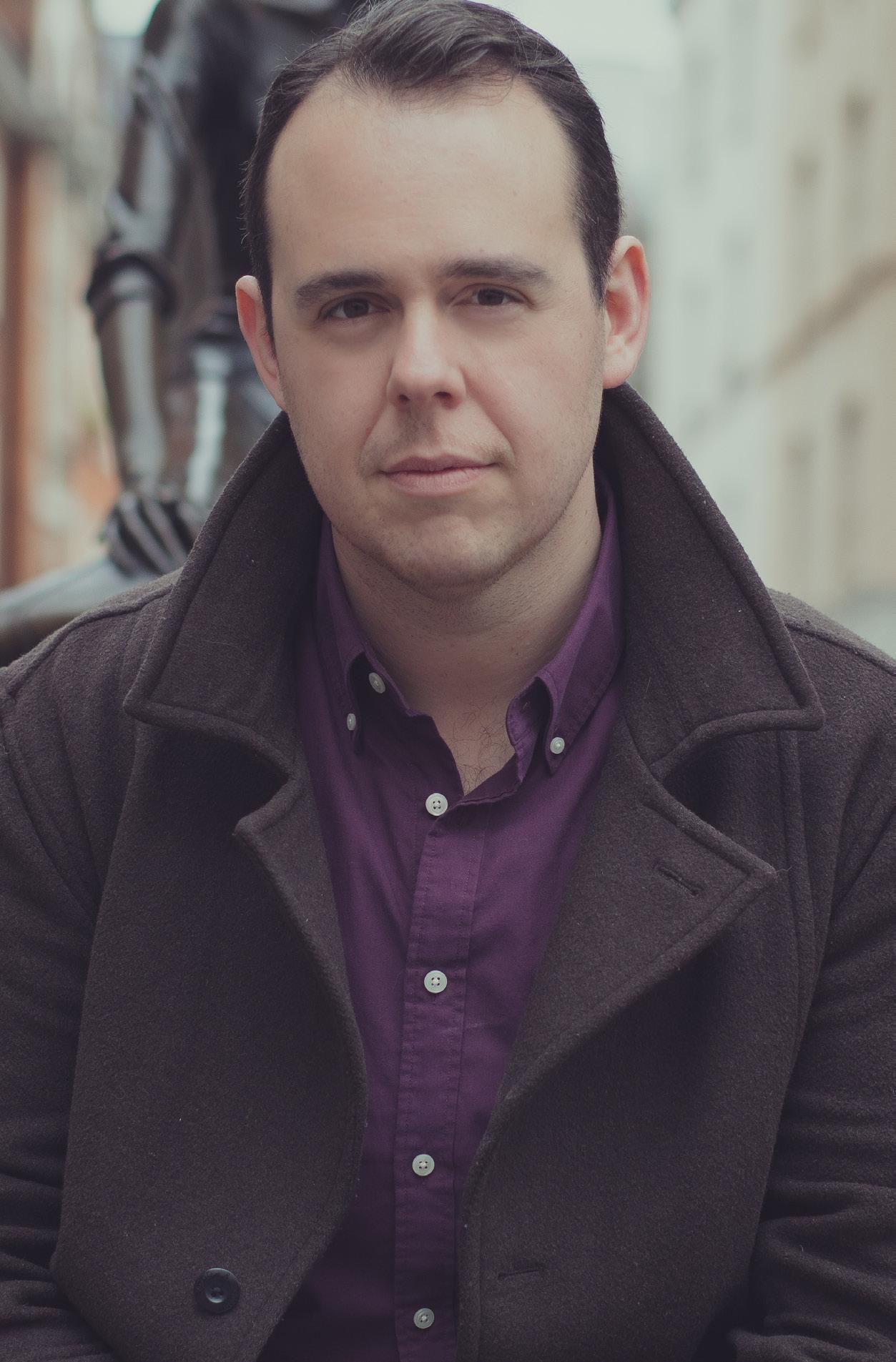
Northern Ireland-based Australian tenor Samuel Sakker is garnering attention as an emerging Heldentenor of distinction and is in increasing demand with leading opera companies and orchestras internationally.
Winner of the Wagner Society Singing Competition, Sakker’s operatic highlights include Tristan und Isolde (Teatro Massimo di Palermo; Opéra National de Lorraine; Opera Ballet Vlaanderen; Opera Théâtre de Caen; Opernhaus Wuppertal); Florestan (Fidelio) under the baton of Gustavo Dudamel (Simón Bolivar Symphony Orchestra); title role of Lohengrin (Ópera de Oviedo); Erik (Der Fliegende Holländer, Opéra AngersNantes; Opéra de Rennes; Nederlandse Reisopera; Cape Town Opera); Siegmund (Die Walküre), and Pollione (Norma) with Melbourne Opera; Boris and Tikhon (Kát´a Kabanová, Scottish Opera); Don Josè (Carmen, Danish National Opera); Macduff (Macbeth, Grange Festival Opera; Melbourne Opera); and subsequent roles with Royal Opera House, Opera Australia, Glyndebourne Festival Opera, Adelaide Festival, New Zealand Opera, Opera Queensland, Opera Holland Park, West Australian Opera, and State Opera of South Australia.
On the concert platform he has performed Tristan (Tristan und Isolde Act 2, Enescu Philharmonic Orchestra); Mahler’s Das Lied von der Erde (Stadttheater Klagenfurt; Bolzano, Italy; Royal Ballet; English National Ballet); Beethoven’s Ninth Symphony (Warsaw Philharmonic Orchestra; Tasmanian Symphony Orchestra; Royal Philharmonic Orchestra); the title role in Lili Boulanger’s Faust et Hélène (Royal Stockholm Philharmonic Orchestra and BBC Symphony Orchestra); Verdi’s Messa de Requiem (Christchurch Symphony Orchestra, New Zealand); Mozart’s Requiem (Japan; Cadogan Hall); Handel’s Messiah (Melbourne Symphony Orchestra); A Child of our Time (Bournemouth Symphony Orchestra); James Nolan in the Grammy-nominated recording of Dr Atomic, which was also performed in concert at the Barbican under the baton of John Adams (BBC Symphony Orchestra); and Ulrik in William Alwyn’s Miss Julie (BBC Symphony Orchestra; recorded on the Chandos label) with conductors including Sir Antonio Pappano, Alan Gilbert, Hartmut Haenchen, Daniel Oren, Dan Ettinger, Marc Minkowski, Nicola Luisotti, Sakari Oramo, James Gaffigan, Leo Hussain, and Alejo Pérez.
The coming season sees him return to Opera Ballet Vlaanderen and Opéra national de Lorraine, and make debuts with the Staatsoper Stuttgart, Staatsoper Hamburg, Oper Graz, and the National Symphony Orchestra of Ireland.
NATIONAL CONCERT HALL
2024 — 2025 SEASON
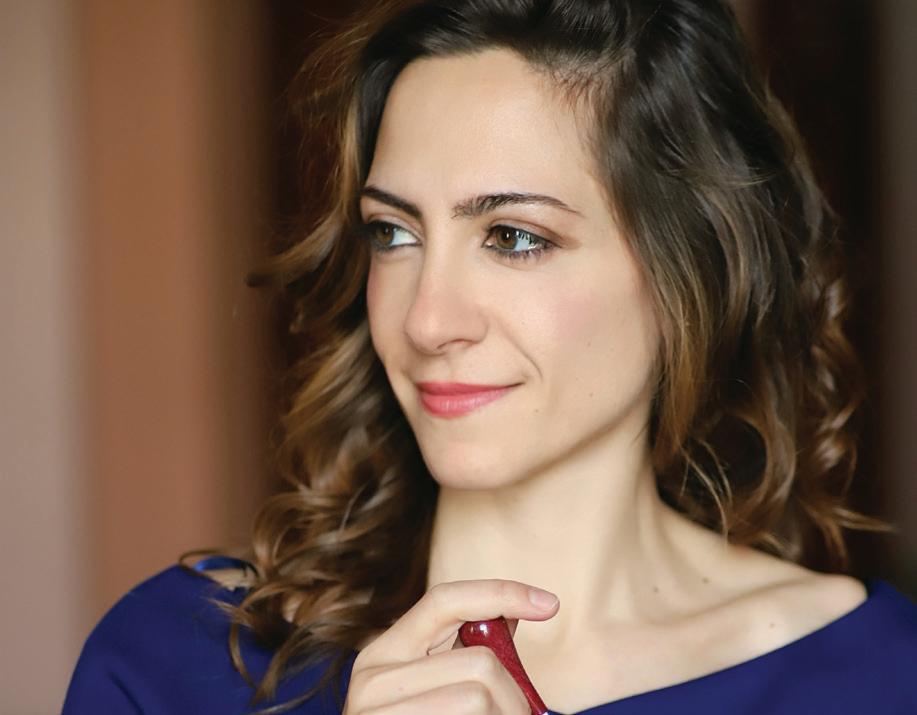
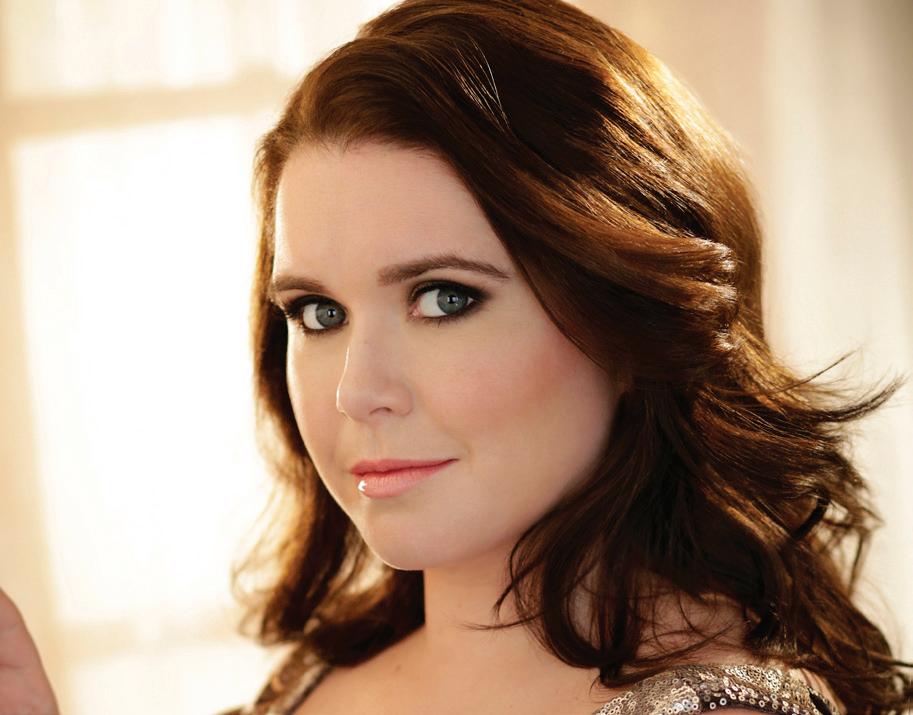
ARTIST-IN-RESIDENCE
mezzo-soprano
National Symphony Orchestra | Clelia Cafiero conductor
Programme includes Mozart, Donizetti, Puccini, Bellini & Rossini
THURSDAY 1 MAY 2025, 7.30PM
University Concert Hall, Limerick
In association with the University Concert Hall
FRIDAY 2 MAY 2025, 7.30PM
National Concert Hall
Book now on nch.ie Tickets from €15

2024 — 2025 SEASON
INTERNATIONAL ORCHESTRAS AND RECITALS NATIONAL CONCERT HALL










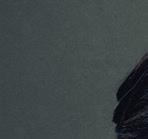

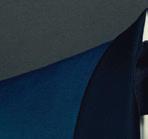
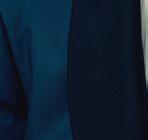
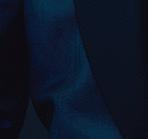






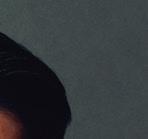



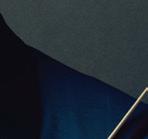





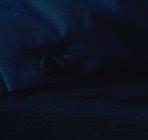





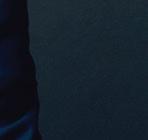

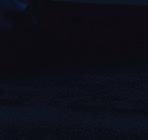







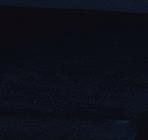
Gautier Capuçon and his cello ensemble
Killian White guest cellist



Acclaimed for his expressive musicianship and exuberant virtuosity, Gautier Capuçon – ‘among the greatest of cellists’ (The Arts Desk) –brings his Capucelli cello ensemble to the National Concert Hall with a programme to seduce and surprise.
WEDNESDAY 26 MARCH 8PM
Tickets from €15
Discounts and Packages Available nch.ie Programme includes Piazzolla, Delibes, Bryce Dessner, Bartók, Bizet and Tchaikovsky
Get to know the people behind the instruments of the National Symphony Orchestra…
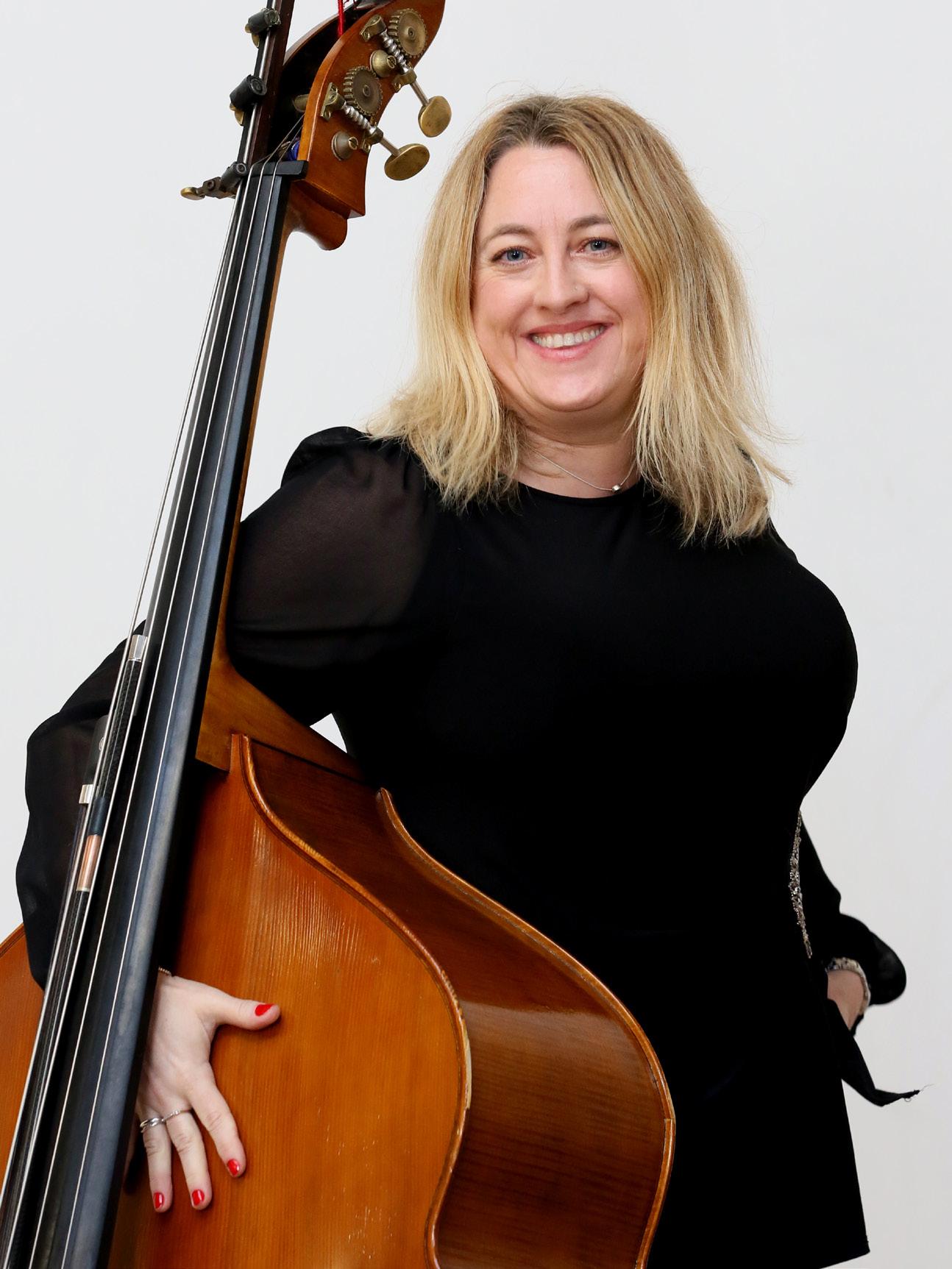
When did you join the National Symphony Orchestra?
April 2003, so nearly 22 years ago.
Where did you study?
I learnt peripatetically in schools in Wales then at London’s Guildhall School of Music and Drama.
Why did you choose to play your instrument?
It was chosen for me! I played the cello for a few weeks but my teacher decided I was more suited to the bass. I loved the sheer size of it. Luckily, my parents had a big car.
Tell us your favourite NSO story/memory so far.
A trip to Bucharest a few years ago was great fun. Touring is really important for an orchestra in both a musical and social capacity. It also brings the NSO to new audiences.
Which work in the upcoming season are you most excited to perform? Why?
I’m really looking forward to Mahler’s Ninth Symphony with Anja Bihlmaier [May 30].
The last piece I played with the National Youth Orchestra of Wales, it holds some very special memories.
What do you enjoy doing when you’re not playing with the orchestra?
I’m a third of the way through walking the 186 miles of the Pembrokeshire costal path; it’s spectacular and I complete a little bit every holiday. I also fancy myself as a bit of a horticulturist and enjoy tending to my garden.
Do you have any pre-concert rituals or superstitions?
No superstitions, but time permitting, it’s lovely to go for a meal with colleagues between the last rehearsal and concert.
What was the last book/podcast/TV series you really loved?
The Traitors on TV. It’s so interesting to watch the contestants’ interactions and behaviours. I enjoyed the deviousness of it all, although I don’t know what that says about me as a person!
Do you have any secret talents?
I can vocally imitate an air raid siren and have been known to clear a restaurant!
If you could have dinner with anyone (alive or dead) who would it be, and why?
The entire ‘Rat Pack’ please. I can only imagine all the stories that they’d have to tell!
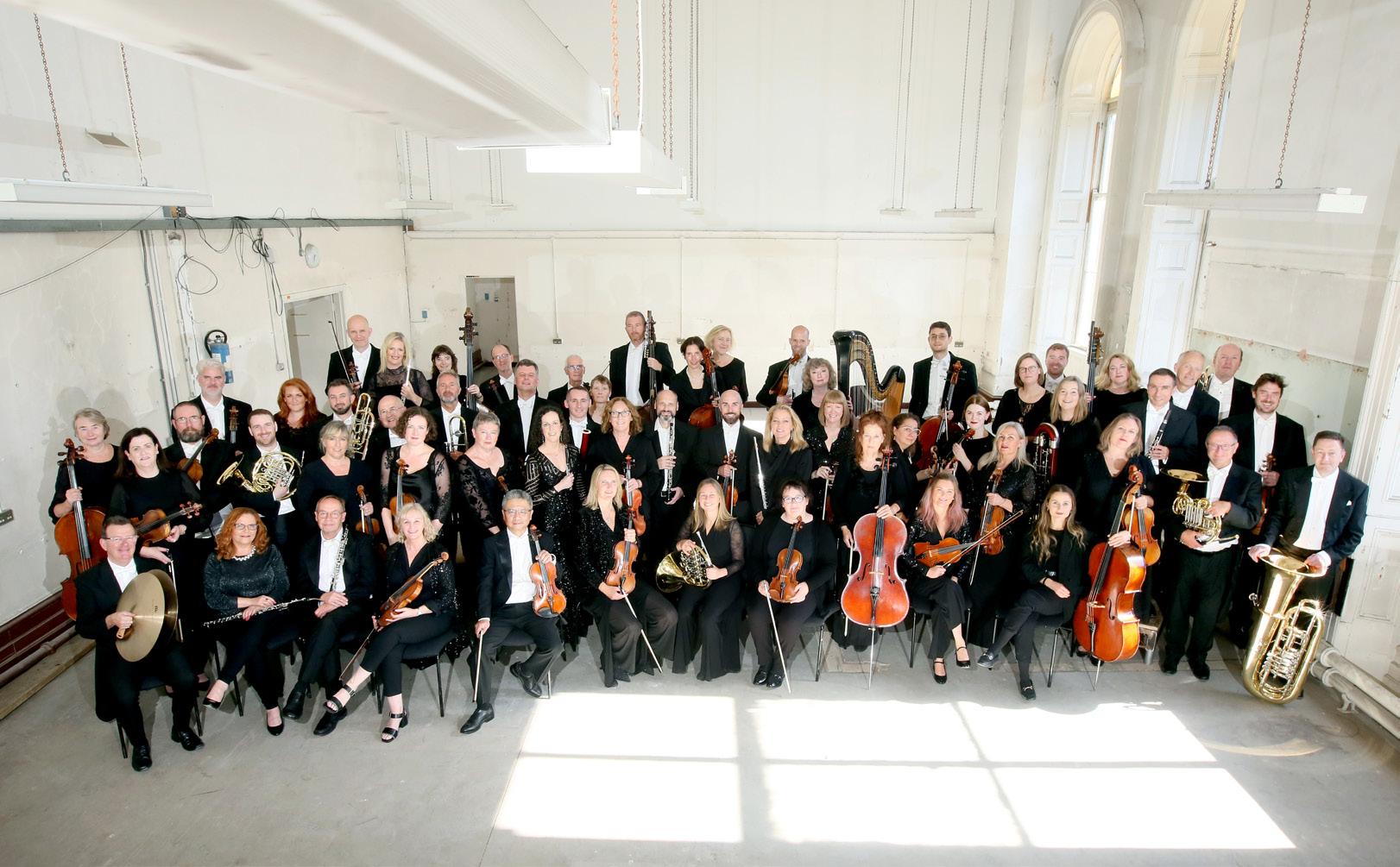
The National Symphony Orchestra has been at the centre of Ireland’s cultural life for over 75 years. Formerly the RTÉ National Symphony Orchestra, it was founded in 1948 as the Raidió Éireann Symphony Orchestra. In 2022, the Orchestra transferred from RTÉ to the remit of the National Concert Hall.
Resident orchestra of the National Concert Hall since its opening in 1981, it is a leading force in Irish musical life through year-long programmes of live music –ranging from symphonic, choral and operatic to music from stage and screen, popular and traditional music, and new commissions – alongside recordings, broadcasts on RTÉ and internationally through the European Broadcasting Union. Schools concerts, family events, initiatives for emerging artists and composers, collaborations with partner promoters and organisations extend the orchestra’s reach.
As a central part of the National Concert Hall’s 2024-2025 Season, the NSO presents more than 55 performances shared between Dublin, Galway, Limerick, Waterford and Cork. They include collaborations with international and Irish artists, ensembles and conductors – including a number of events with the National Concert Hall’s Artists-in-Residence: the renowned American musician and composer Bryce Dessner, the internationally acclaimed Irish mezzo-soprano Tara Erraught, and the dynamic musician and presenter Jessie Grimes. The programme is rich and varied, presenting repertoire from across the centuries to the present day including world and Irish premieres, choral masterpieces, birthday and anniversary celebrations, family concerts and screenings, schools concerts, and professional initiatives for emerging singers and composers. A focus on nature and the environment is a central part of the season’s programming.
Highlights with the Artists-in-Residence are many. They include three Irish premieres by Bryce Dessner: Mari, his Violin Concerto performed by its dedicatee, Pekka Kuusisto, and his Concerto for Two Pianos performed by Katia and Marielle Labèque, for whom it was written. Tara Erraught performs virtuosic works by Mozart, Haydn and Marianne von Martínez, with historical performance specialist Laurence Cummings conducting, and arias by Mozart, Puccini, Bellini, Donizetti and Rossini, with Clelia Cafiero conducting. Tara is also the driving force behind Celebrating the Voice, a week-long professional development programme for young singers which culminates in an opera gala with the NSO conducted by Anu Tali. Jessie Grimes leads immersive, family-friendly concerts including Our Precious
Planet and explorations of iconic works: Beethoven’s Fifth Symphony and Berlioz’s Symphonie fantastique as part of the ASD-friendly Symphony Shorts, as well as Prokofiev’s Peter and the Wolf, featuring new and specially commissioned shadow puppetry, and Britten’s The Young Person’s Guide to the Orchestra.
Other exciting highlights include Dame Sarah Connolly joining conductor Mihhail Gerts for Alma Mahler’s Six Songs; an 80th birthday celebration for conductor Leonard Slatkin which includes the world premiere of his son Daniel’s cosmic journey, Voyager 130; Hugh Tinney performing Beethoven’s Fourth Piano Concerto; Speranza Scappucci conducting a Ravel Birthday Celebration; John Storgårds conducting Rachmaninov and Shostakovich; Anja Bihlmaier conducting Mahler’s Ninth Symphony; and Ryan McAdams conducting the First Violin Concerto by Philip Glass with NSO Leader Elaine Clark as soloist; and John Luther Adams’ Pulitzer Prize-winning Become Ocean. Jaime Martín returns to conduct Chopin’s Second Concerto with Yeol Eum Son as the soloist, and former Principal Conductor Gerhard Markson returns for Stanford’s Requiem featuring the National Symphony Chorus and soloists including Máire Flavin and Sharon Carty. World premieres by Ailís Ní Ríain and, as part of Composer Lab, by Amelia Clarkson, Finola Merivale, Barry O’Halpin, and Yue Song all feature. Irish premieres include a new orchestral setting of Philip Glass’s film score Naqoyqatsi with the Philip Glass Ensemble; Stephen McNeff’s The Celestial Stranger with Gavan Ring as soloist; James MacMillan’s St. John Passion with the National Symphony Chorus and Chamber Choir Ireland; and Ukrainian Victoria Vita Polevá’s Third Symphony.
Additional family events include popular screenings of classic children’s stories by Julia Donaldson and Axel Scheffler – Stick Man and The Snail and the Whale – and Roald Dahl’s Revolting Rhymes. Music in the Classroom returns with Junior Cycle and Leaving Certificate Music Guide events, and Musical Adventures for Primary School children.
Other concerts include Martin Hayes with the National Symphony Orchestra, a major new collaboration with the renowned Irish fiddle player and composer centring around a reimagining with orchestra of his acclaimed 2023 Peggy’s Dream album; and, in partnership with esk film, in association with Netflix and Silverback Films, Life on Our Planet in Concert, presenting highlights from across the series on a big screen with Lorne Balfe’s dramatic soundtrack performed live to picture; and, in collaboration with Black Bear and A24, the debut screening of the acclaimed film Sing Sing with Artist-in-Residence Bryce Dessner’s score performed live.
1st Violin
Elaine Clark (Leader)
David Routledge
Sebastian Liebig †
Orla Ní Bhraoin °
Catherine Long
Ting Zhong Deng
David Clark
Anne Harte
Bróna Fitzgerald
Sylvia Roberts
Claudie Driesen
Karl Sweeney
Anna Mitchell
Cliodhna Ryan
2nd Violin
Siobhán Doyle
Elizabeth McLaren ‡
Joanne Fleming Campbell °
Rosalind Brown
Dara O’Connell
Melanie Cull
Evelyn McGrory
Elena Quinn
Magda Kowalska
Matthew Wylie
Oonagh Keogh
Niamh McGowan
Viola
Daisy Spiers
Francis Harte °
Robin Panter
Neil Martin
Cliona O’Riordan
Margarete Clark
Nathan Sherman
Anthony Mulholland
Alison Comerford
Carla Vedres
Cello
Martin Johnson •
Polly Ballard ‡
Violetta-Valerie Muth °
Úna Ní Chanainn
Filip Szkopek
Maria Kolby Sonstad
Anne Murnaghan
Paula Hughes
Double Bass
Mark O’Leary •
Mark Jenkins ‡
David FC Johnson
Waldemar Kozak
Helen Morgan
Jenni Meade
Roger McCann
Flute
Catriona Ryan •
Ríona Ó Duinnín ‡
Rachel Nolan
Piccolo
Marie Comiskey
Rachel Nolan
Oboe
Sylvain Gnemmi ‡
Holly Chilton
Rebecca Halliday
Cor Anglais
Rebecca Halliday
Clarinet
Deirdre O’Leary
Matthew Billing †
Suzanne Forde
Fintan Sutton
E-flat Clarinet
Suzanne Forde
Bass Clarinet
Fintan Sutton †
Bassoon
Greg Crowley •
Kristina Hedley
Hilary Sheil †
Contra Bassoon
Hilary Sheil †
Horn
Mark Smith
Peter Ryan
Bethan Watkeys †
David Atcheler ◊
Dewi Jones
Trumpet
Colm Byrne
Erick Castillo
Pamela Stainer
Trombone
Jason Sinclair • Gavin Roche ‡
Bass Trombone
Josiah Walters †
Tuba
Francis Magee •
Timpani
Niels Verbeek
Percussion
Rebecca Celebuski •
Bernard Reilly ◊
Brian Dungan
Rónán Scarlett
Harp
Andreja Malir •
Rosanna Moore
Celeste
Fergal Caulfield
Mandolin
Alec O’Leary
• Section Leader
† Principal
‡ Associate Principal
° String Sub Principal
◊ Sub Principal 1

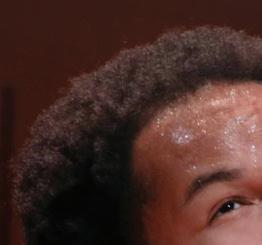

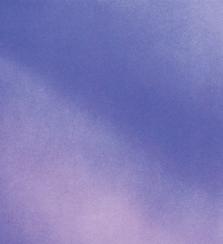
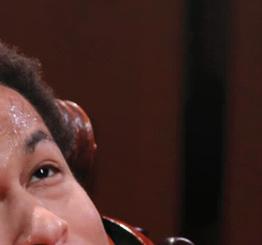
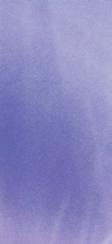
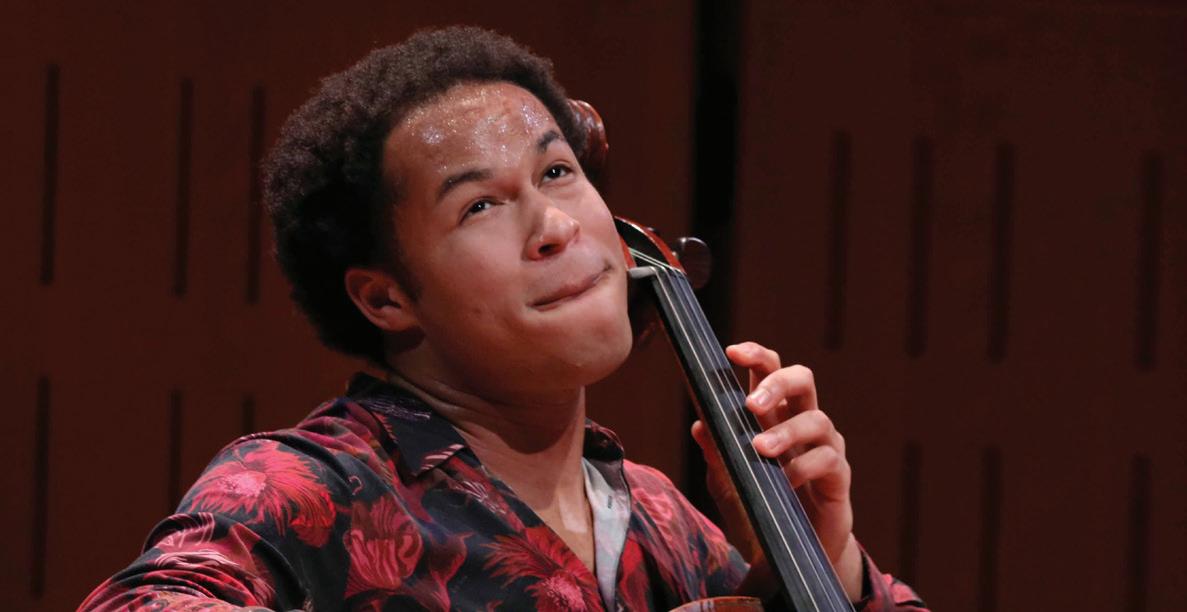
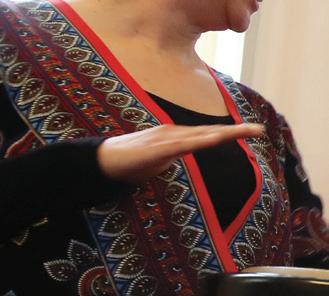



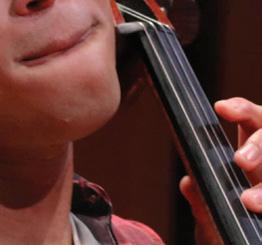





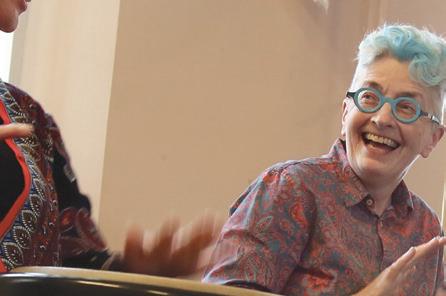

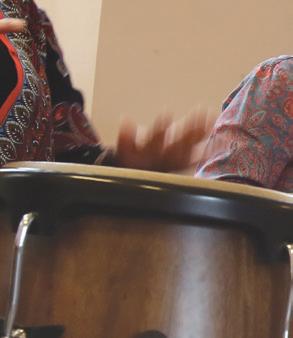



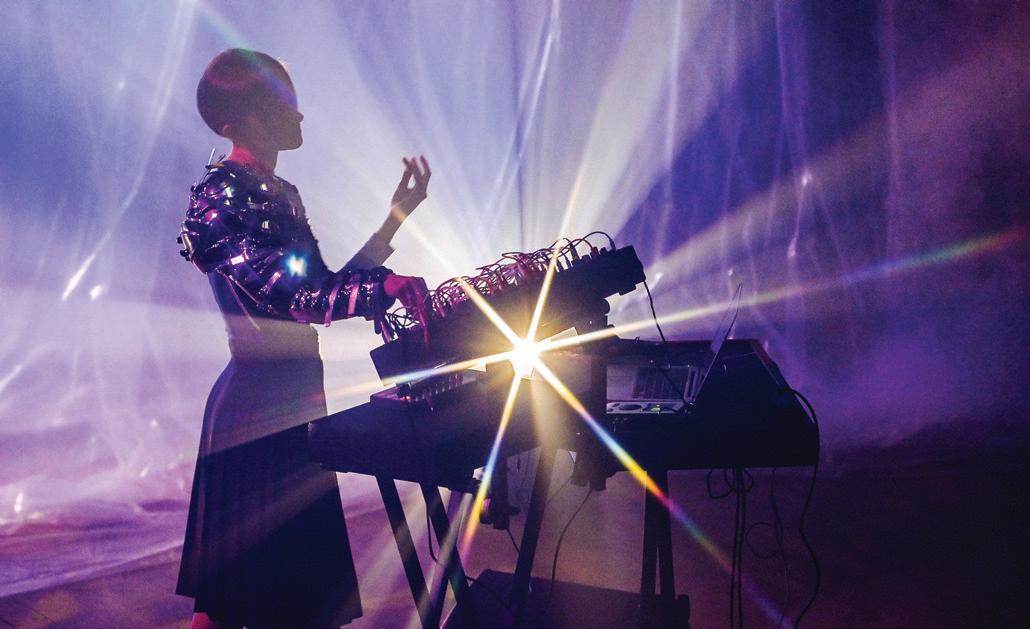



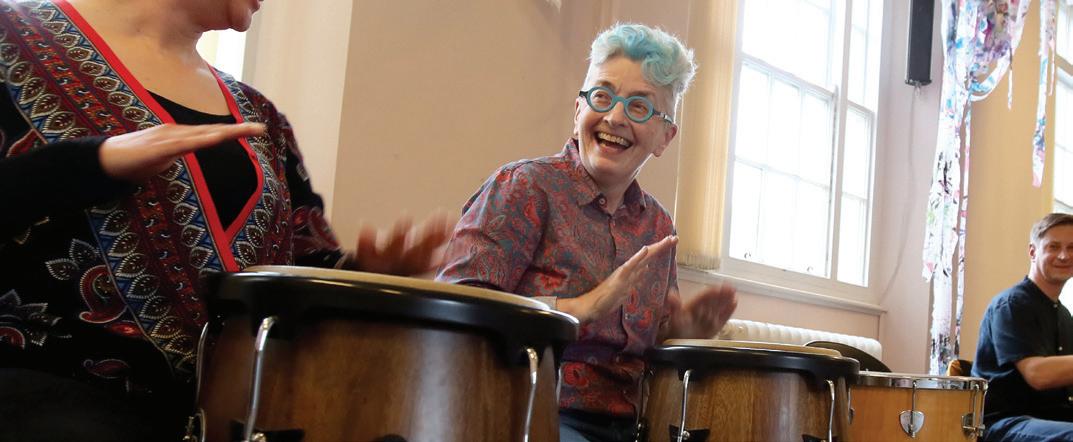
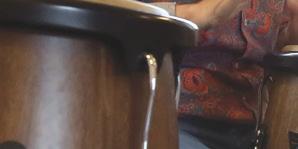

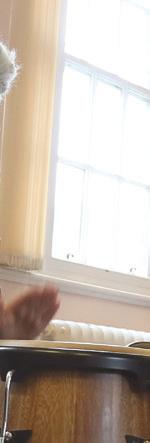
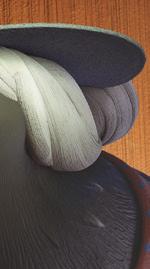

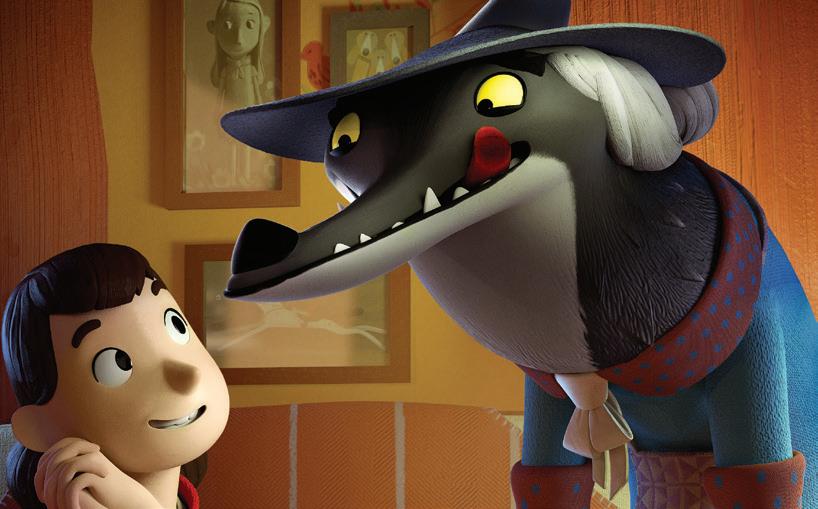
Go spreaga an ceol tú. Bain sult as ceol binn sa Cheoláras Náisiúnta. Is leatsa an Ceol. Is leatsa an Ceoláras Náisiúnta. nch.ie








Our ambition is to create spaces where people thrive; modern, sustainable buildings that set the standard for how we work today.
We are proud to be one of Dublin’s largest real estate owners, and with scale, comes the opportunity to shape our city. Our buildings form the cornerstone of neighbourhoods that enhance business life, and are always, inclusive, vibrant places for all.
We see every investment, every development, every building as an opportunity to make a positive contribution to local communities and to everyone who lives, works, and socialises there.
27 — 29 JUNE 2025

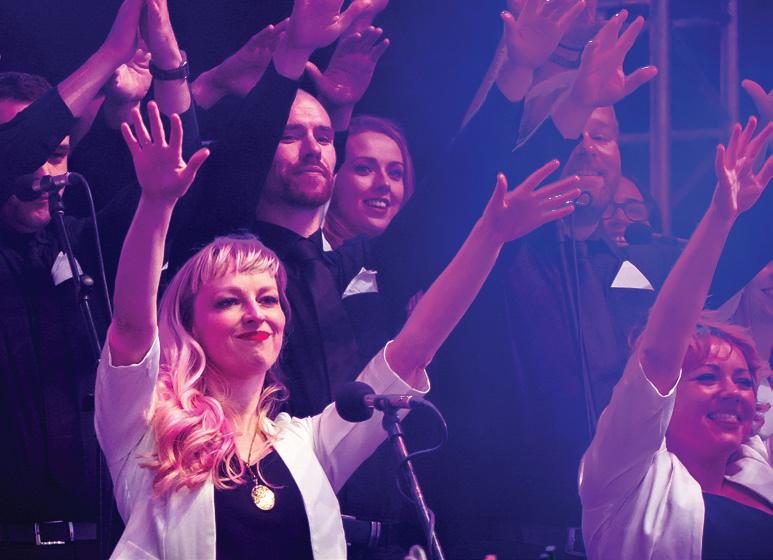
TICKETS FROM NCH.IE
THE SIXTEEN IARLA Ó LIONÁIRD
EIMEAR QUINN
TOLÜ MAKAY
NATIONAL SYMPHONY
ORCHESTRA
DUBLIN GOSPEL CHOIR
DUBLIN GAY MEN’S CHORUS
DUBLIN SLANG
& MUCH MORE
